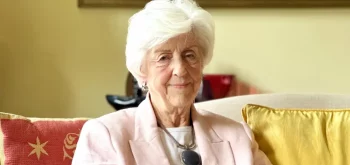The police have been warned about holding ‘excessive amounts’ of sensitive information from complainants’ mobile phones deterring the reporting of crime. ‘Current mobile phone extraction practices and rules risk negatively affecting public confidence in our criminal justice system,’ the information commissioner Elizabeth Denham has said.
There has been a debate about the police’s treatment of rape victims’ mobile phones since the collapse of the trial of Liam Allan in 2017. Concern came from different sides of the issue, those concerned about the erosion of defendants’ rights as well as those concerned about the plight of victims of crime. In the Allan case, the police downloaded 40,000 text and WhatsApp messages from the complainant’s phone but refused to pass this evidence on to the defence. His trial collapsed after police were ordered to hand over phone records. The civil liberties group Big Brother Watch launched a campaign against what it has labelled ‘digital strip searches’ to protect victims of sexual violence from ‘intrusive data gathering’. More on the Justice Gap here.
A new report from the Information Commissioner’s Office found that police data extraction practices vary across the country with ‘excessive amounts of personal data often being extracted and stored without an appropriate basis in existing data protection law’. ‘People expect to understand how their personal data is being used, regardless of the legal basis for processing,’ commented Information Commissioner Elizabeth Denham. ‘My concern is that an approach that does not seek this engagement risks dissuading citizens from reporting crime, and victims may be deterred from assisting police.’
She pointed that regulatory framework pre-dated phone technology and that the existing laws were ‘complex and cannot be viewed solely through the lens of data protection’. The report talks of the ‘significant requirements’ that the police would need to meet ‘to rely on the legal basis of consent’. The report outlines an alternative condition for processing ‘where it is necessary for the performance of a task carried out for a law enforcement purpose by a competent authority. The watchdog also calls for the introduction of a new code of practice to improve practice for police and prosecutors.
The Centre for Women’s Justice is representing victims of serious sexual offences in a legal challenge against the National Police Chiefs’ Council (NPCC) and the Crown Prosecution Service. It has now called on the NPCC to immediately withdraw consent forms. According to the legal charity, the claim on behalf of two victims of serious sexual offences sets out how such forms were unlawful and discriminated against women. ‘Both claimants had been told that no criminal action could be taken against their attackers unless they agreed to full downloads of data from their mobile phones spanning a number of years,’ the group said.
‘At CWJ we are constantly being referred cases where victims of serious sexual offending are extremely distressed that they have been asked to agree to a full or very extensive download from their mobile phones, whether or not it’s proportionate to the facts of the case,’ said Kate Ellis, solicitor at CWJ. ‘Victims are frequently being told that they have no choice, or the suspect will not be prosecuted.’
Talking to the Justice Gap last year, Liam Allan urged caution and said that the issue was being inaccurately presented as ‘the police suspecting the complainant is making a false allegation’. ‘However, the information stored can be just as vital to proving guilt as it is proving innocence,’ he said. ‘This is constantly spun as a negative thing for real victims of rape, when in truth, without the victim even realising, there could be vital evidence within those messages that assist their case. Without such an investigation, many real cases will collapse, whilst many false ones will go through. That’s a dangerous gamble.’






